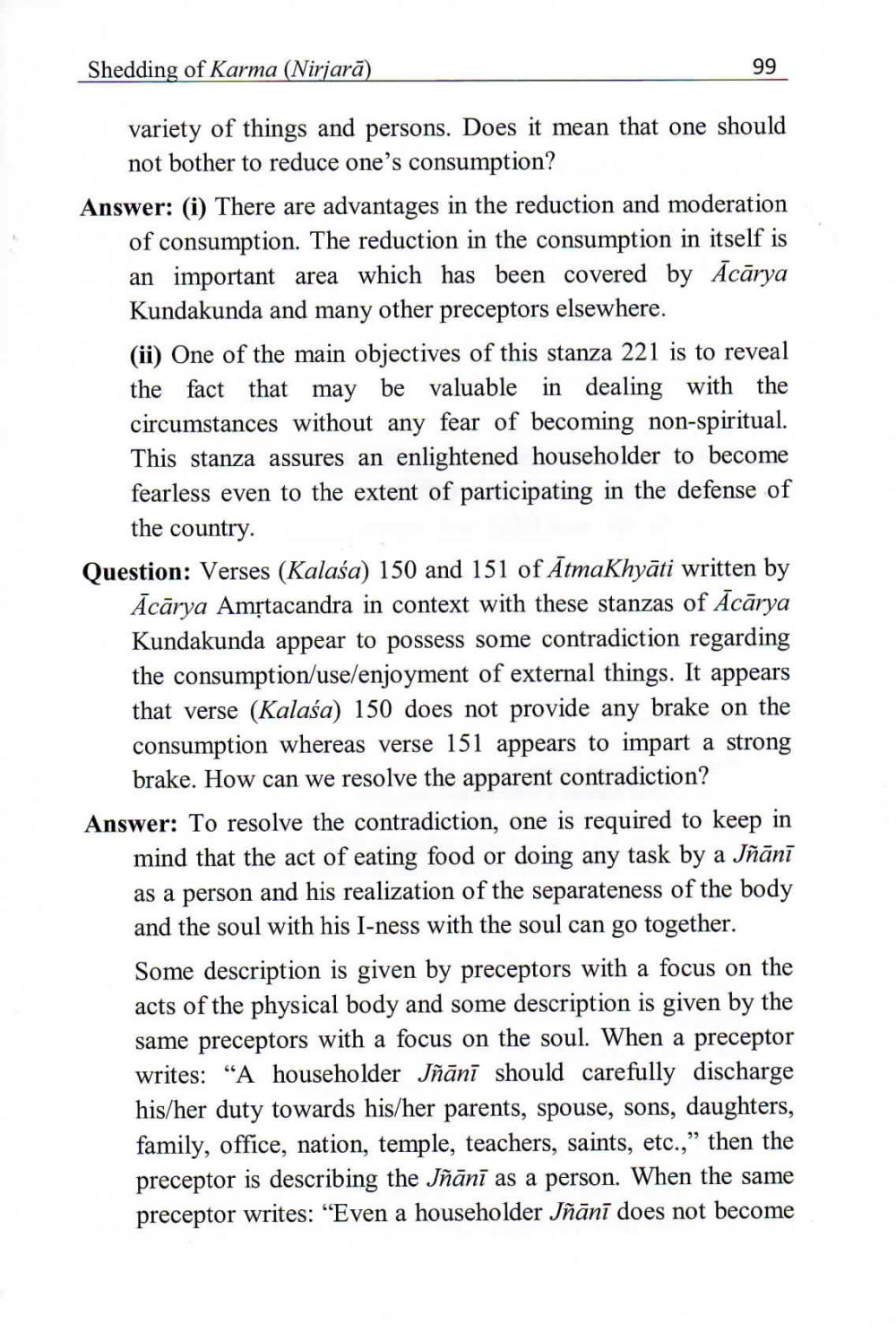________________
Shedding of Karma (Nirjarā)
99
variety of things and persons. Does it mean that one should
not bother to reduce one's consumption? Answer: (i) There are advantages in the reduction and moderation
of consumption. The reduction in the consumption in itself is an important area which has been covered by Ācārya Kundakunda and many other preceptors elsewhere. (ii) One of the main objectives of this stanza 221 is to reveal the fact that may be valuable in dealing with the circumstances without any fear of becoming non-spiritual. This stanza assures an enlightened householder to become fearless even to the extent of participating in the defense of
the country. Question: Verses (Kalasa) 150 and 151 of Ātmakhyāti written by
Ācārya Amặtacandra in context with these stanzas of Ācārya Kundakunda appear to possess some contradiction regarding the consumption/use/enjoyment of external things. It appears that verse (Kalasa) 150 does not provide any brake on the consumption whereas verse 151 appears to impart a strong
brake. How can we resolve the apparent contradiction? Answer: To resolve the contradiction, one is required to keep in
mind that the act of eating food or doing any task by a Jñānī as a person and his realization of the separateness of the body and the soul with his I-ness with the soul can go together. Some description is given by preceptors with a focus on the acts of the physical body and some description is given by the same preceptors with a focus on the soul. When a preceptor writes: "A householder Jñānī should carefully discharge his/her duty towards his/her parents, spouse, sons, daughters, family, office, nation, temple, teachers, saints, etc.,” then the preceptor is describing the Jñānī as a person. When the same preceptor writes: "Even a householder Jñānī does not become




